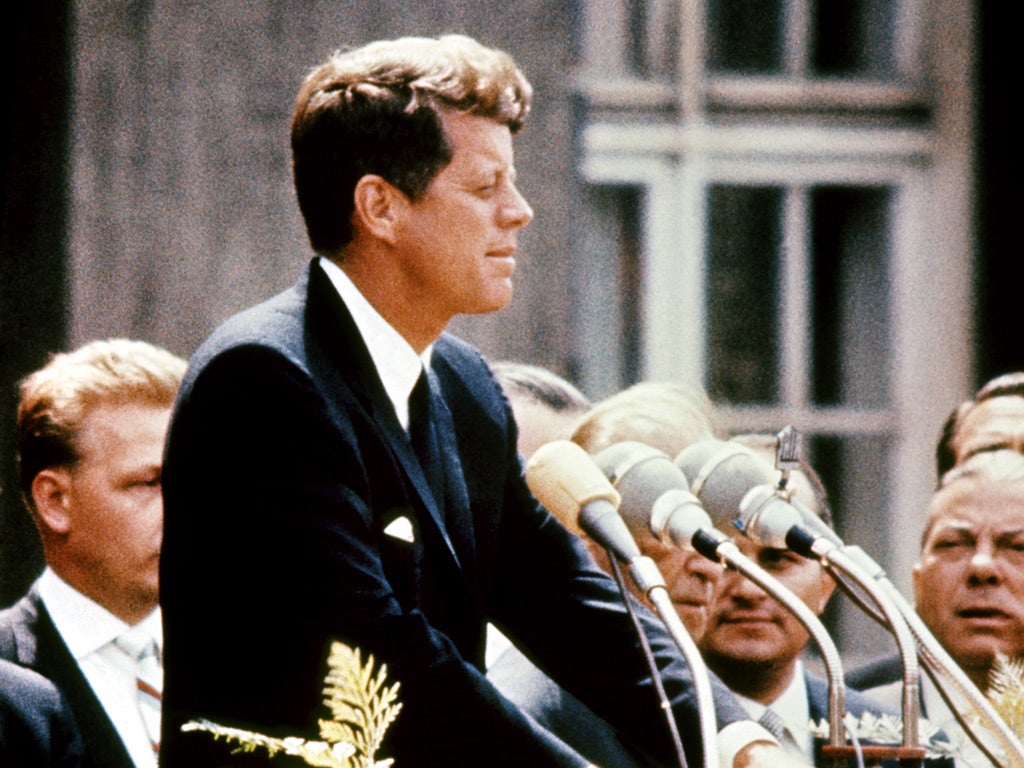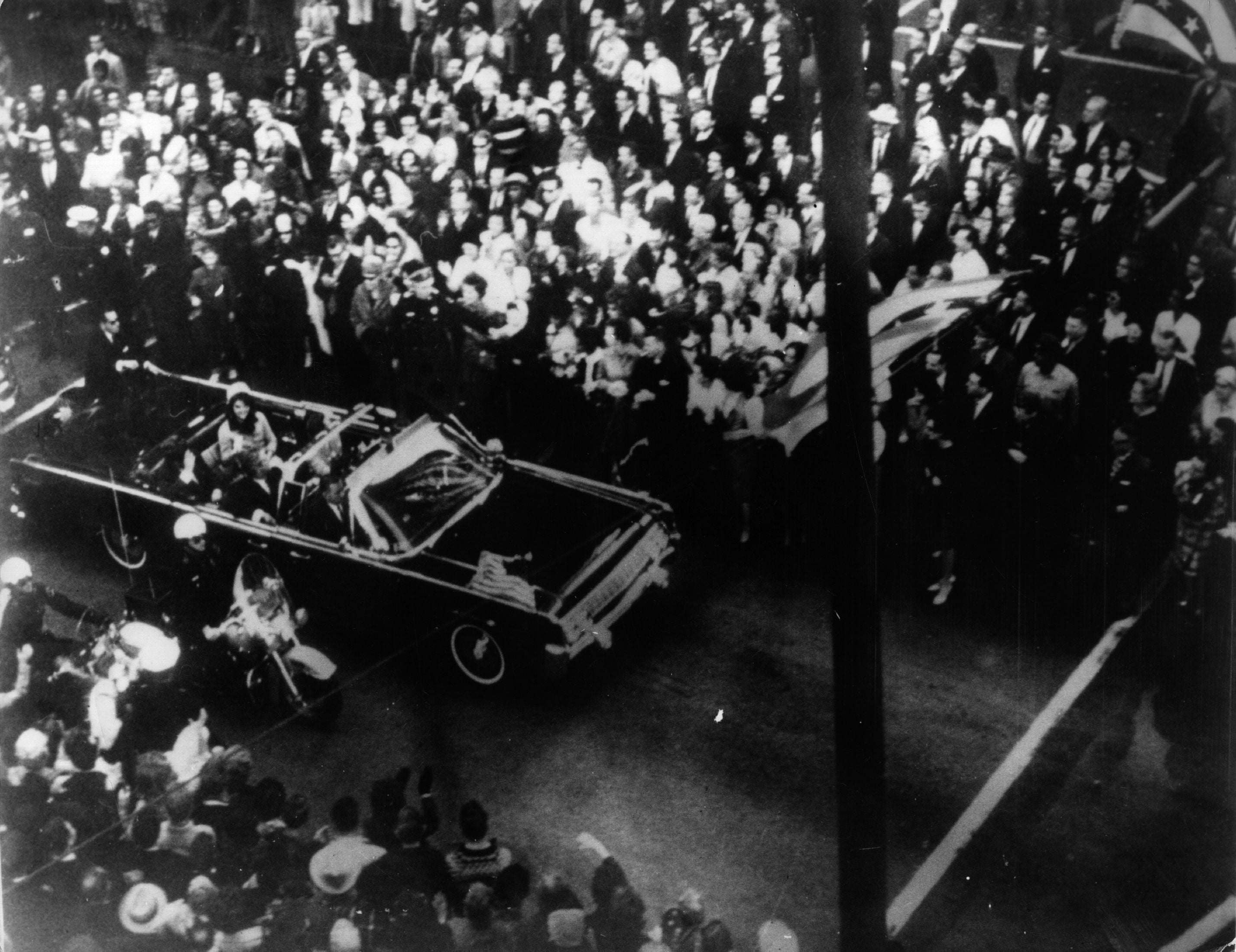
Lee Harvey Oswald, the sniper who shot 35th US president John F Kennedy from the upper floors of the Texas School Book Depository in Dallas on 22 November 1963, was operating under direction from the former head of the CIA, a veteran investigator has argued in his latest book on the assassination.
Dr Cyril Wecht, a 90-year-old forensic pathologist who has studied the killing for almost six decades, claims in the The JFK Assassination Dissected that Oswald, who was himself murdered by local businessman Jack Ruby just two days after his arrest, had been under orders from Allen Dulles, CIA director from 1953 to 1961.
Dulles had overseen the disastrous Bay of Pigs assault on post-revolutionary Cuba, launched in April 1961 with the aim of removing Communist leader Fidel Castro, and had been swiftly dismissed from office by President Kennedy after the operation’s humiliating failure.
Dr Wecht now argues that Dulles was so resentful over the episode that he groomed Oswald, a former marksman with the Marines who had recently returned from the USSR, to execute his enemy in the White House.
Speaking to The New York Post, the author says his suspicions about Dulles were raised by his subsequent appointment to the seven-man Warren Commission, which took 10 months to investigate the death and concluded that Oswald had acted alone, characterising him as a disaffected loner with Communist sympathies.
Oswald “had almost certainly been a CIA agent of some kind,” Dr Wecht told the newspaper. “Kennedy had fired Allen Dulles because he was really pissed off about what the CIA was doing. Then who gets appointed to the Warren Commission? Dulles. It stinks to high heaven.”
He also points to the suspicious ease with which Oswald was allowed to return to the US after his stint in Russia at the height of the Cold War and in the company of a new bride, Marina Prusakova, who was the daughter of a KGB agent, suggesting he must have had friends in high places.
The JFK Assassination Dissected contains previously unpublished interviews with Oswald’s widow and with CIA-affiliate George de Mohrenschildt (who befriended the Oswalds and took his own life in 1977) in which both endorse that idea that the shooter was a “patsy”.
Dr Wecht famously told the House Select Committee on Assassinations in 1978 that he considered the explanation that Oswald had acted alone not credible due to the differing trajectories of the bullets that struck Kennedy as he rode in his open-top presidential limousine through the Texas city.
He insists a second gunman must have been positioned behind a picket fence on a nearby grassy knoll and maintains that argument today, telling The Post: “Under the single bullet theory, Oswald is the sole assassin, he’s firing from the sixth-floor window of the Texas School Book Depository building, so the bullet is moving from up, downward, right? So how the hell could it go upward?
“Young people are still being taught that the 35th president was murdered by a lone gunman, and that is simply bulls***,” he adds.

A former coroner of Allegheny County in Pennsylvania who has conducted over 17,000 autopsies himself and offered expert testimony on the deaths of Robert F Kennedy, Martin Luther King Jr, Elvis Presley and JonBenet Ramsey, Dr Wecht became the first non-governmental forensic pathologist to be granted access to the US National Archives’ materials on the JFK killing in 1972 and, as a result of what he found there, also alleges malpractice surrounding the autopsy on the president’s body.
He claims in his new book that Dallas coroner Dr Earl Rose, based at Parkland Memorial Hospital where Kennedy was initially taken for treatment, was physically intimidated by Secret Service personnel, who prevented him from examining the commander-in-chief’s injuries before his body was flown out to Washington, DC.
On visiting the National Archives, the author learned that Kennedy’s brain had been removed – to prevent further scrutiny, he alleges – and remains “unaccounted for”.
Dr Wecht, who advised Oliver Stone on his conspiracy-minded 1991 movie JFK about the aftermath of the killing, explains the rationale behind his writing the new book by saying: “I don’t intend to live forever, just for a long time. I felt I wanted to lay out all the things I’ve experienced and done and the people I’ve met, and it was time. I’ve been working on the book for six years.”
His work and that film are part of the reason behind the Kennedy assassination’s enduring status as one of the central conspiracy theories of our time.
Vincent Bugliosi, ex-Los Angeles district attorney, has estimated that no fewer than 42 groups and 214 different people have been accused of the killing, according to The Times.
A year after JFK’s release in cinemas, a public outcry prompted Congress to pass the JFK Assassination Records Collection Act, which required that all government files concerning the case be published by 2017.
Donald Trump allowed that deadline to pass citing national security concerns but his successor, Joe Biden, has provisionally scheduled the release of the final tranche of documents for December 2022.







